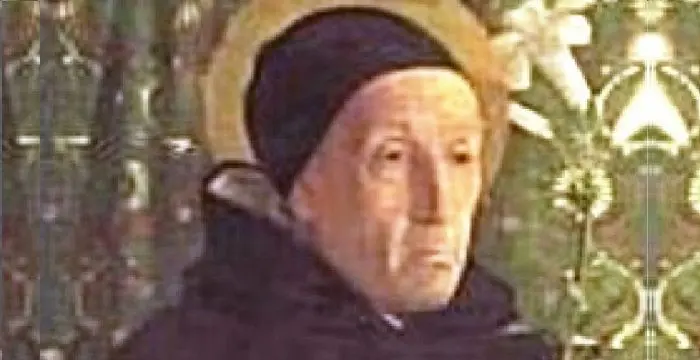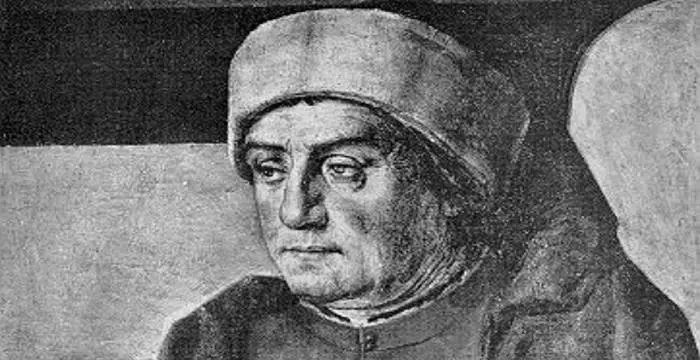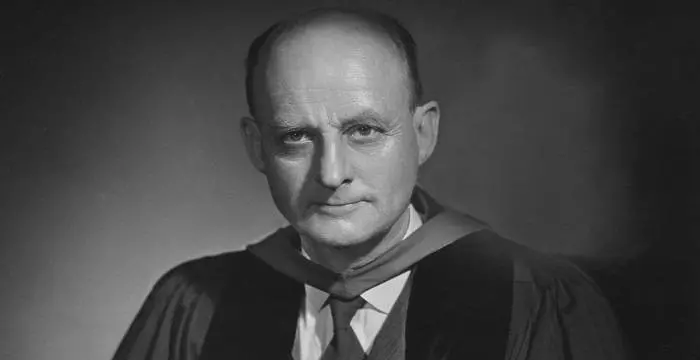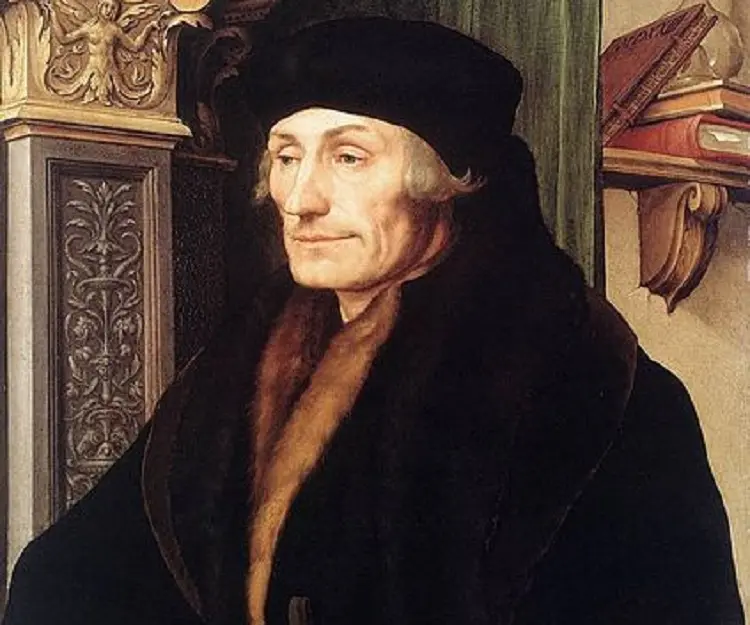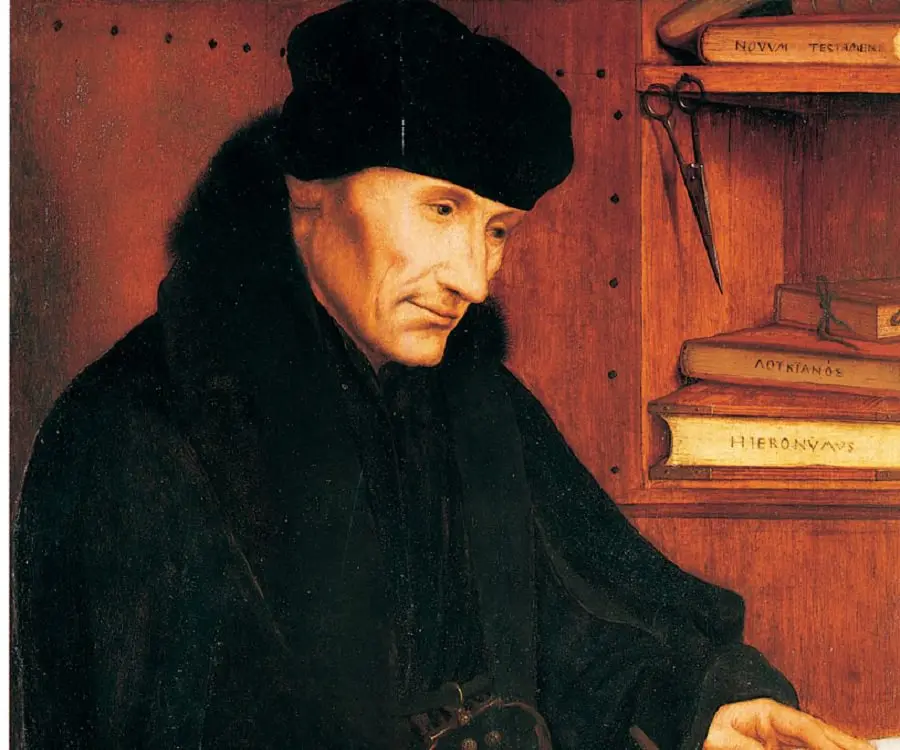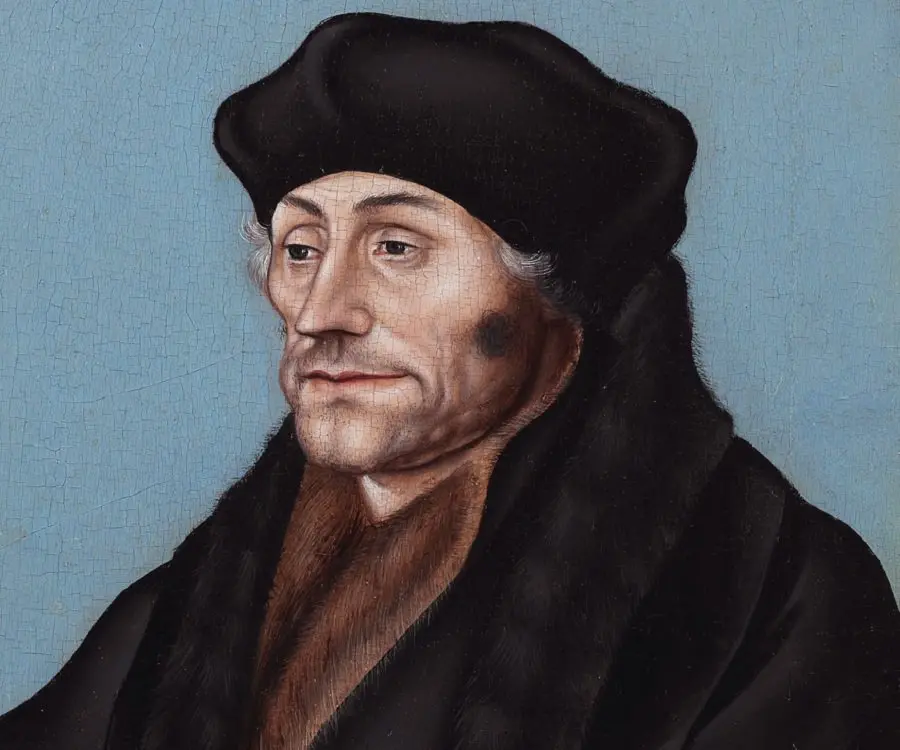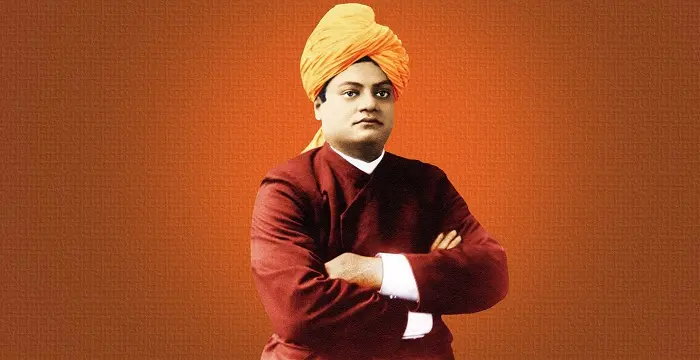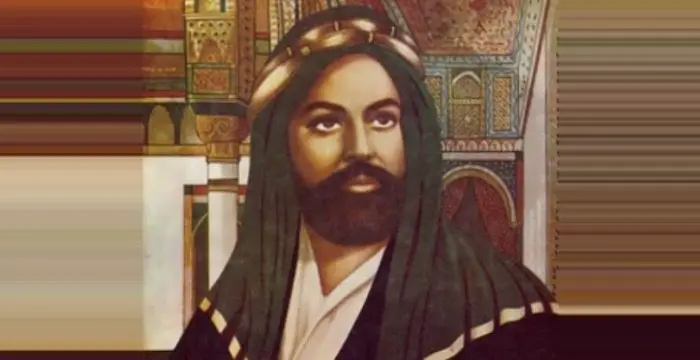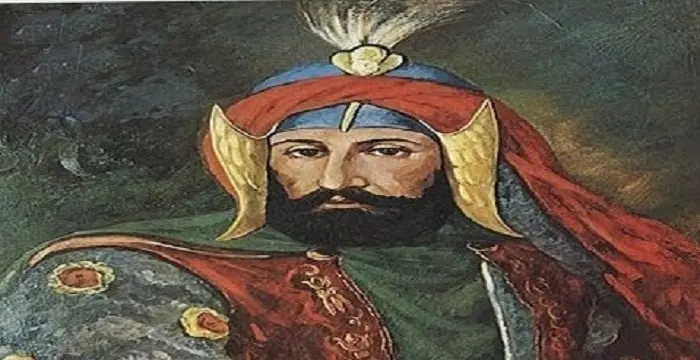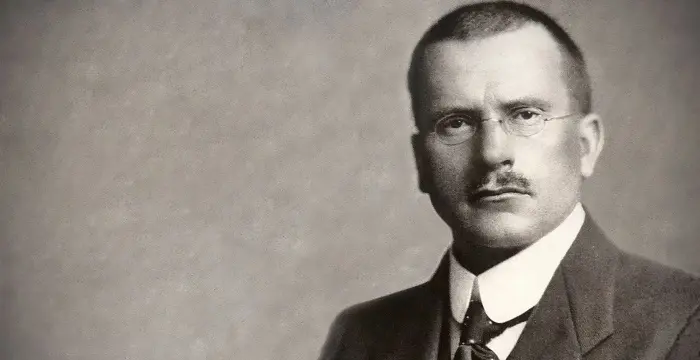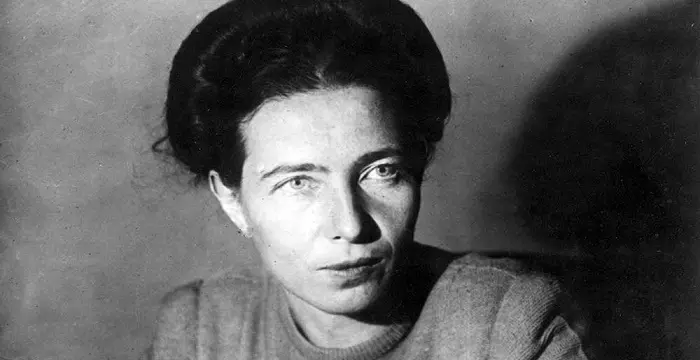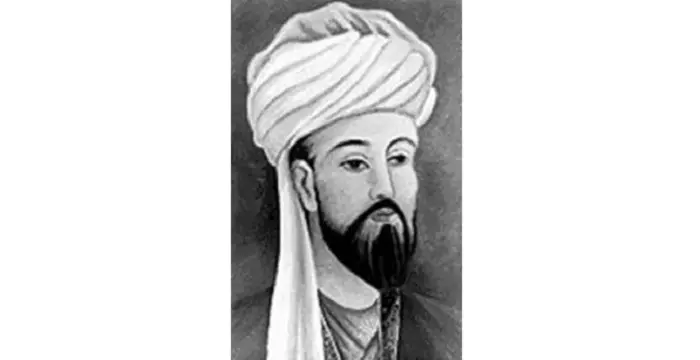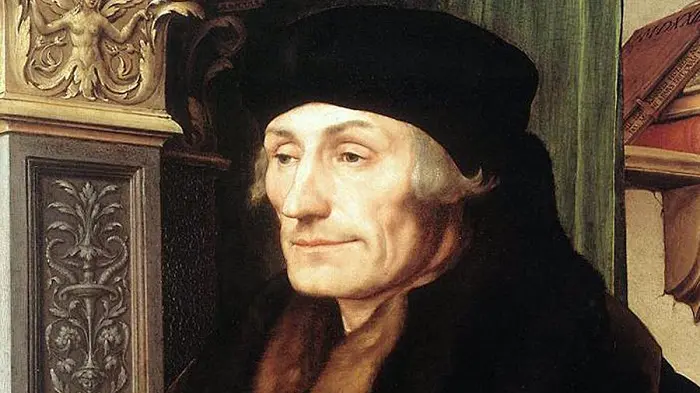
Desiderius Erasmus - Theologians, Facts and Family
Desiderius Erasmus's Personal Details
Desiderius Erasmus was a Dutch Renaissance humanist and Catholic priest
| Information | Detail |
|---|---|
| Birthday | October 27, 1466 |
| Died on | July 12, 1536 |
| Nationality | Dutch |
| Famous | Philosophers, Theologians, Leaders, Spiritual & Religious Leaders |
| Known as | Erasmus Rotterdam |
| Universities |
|
| Birth Place | Rotterdam |
| Religion | Catholicism |
| Gender | Male |
| Sun Sign | Scorpio |
| Born in | Rotterdam |
| Famous as | Theologian |
| Died at Age | 69 |
// Famous Theologians
Meister Eckhart
Explore this biography to know the profile, childhood, life and timeline of Meister Eckhart, who brought in a great change in Germany with his groundbreaking thesis and ideas.
Anicius Manlius Severinus Boethius
Boethius was an early 6th century Roman senator and philosopher best known for his treatise ‘Consolation of Philosophy’. This biography of Boethius provides detailed information about his childhood, life, achievements, works & timeline.
Reinhold Niebuhr
Reinhold Niebuhr was a German-American theologian, intellectual and political commentator who wrote the famous book, ‘Moral Man and Immoral Society’. This biography provides information about his profile, childhood, life and timeline.
Desiderius Erasmus's photo
Who is Desiderius Erasmus?
Desiderius Erasmus was a Dutch Renaissance humanist, theologian and teacher who became a leading figure of the early humanist movement. Counted amongst the most controversial early Renaissance figures, Erasmus all through his life worked for a middle way between Roman Catholicism and Protestantism. Born against the backdrop of the growing European religious Reformation, Erasmus was a lifelong member of the Roman Catholic Church. He had a deep-seated respect for traditional faith and grace and believed in the authority of the Pope. However, he was critical of the abuses within the Church and its clergy's weaknesses and vowed to reform the same from within. Erasmus lived life of a classical independent scholar. Using his humanist touch, he penned several editions of the New Testament in Latin and Greek, which in turn led to the Protestant Reformation and Catholic-Counter Reformation. Throughout his life, Erasmus was offered many academic positions of honor worldwide but he declined them all, preferring the uncertain but sufficient rewards of independent literary activity.
// Famous Leaders
Edi Rama
Edi Rama is the current Prime Minister of Albania. Check out this biography to know about his childhood, life, achievements, works & timeline.
Tecumseh
Tecumseh was a Native American leader of the Shawnee clan. This biography profiles his childhood, life and timeline.
Khalifa bin Zayed Al Nahyan
Sheikh Khalifa bin Zayed Al Nahyan is the current President of the United Arab Emirates (UAE). Check out this biography to know about his birthday, childhood, family life, achievements and fun facts about him.
Childhood & Early Life
Desiderius Erasmus was born on October 27, 1466 in Rotterdam, Netherlands to Gerard, a Catholic priest and Margaretha Rogerius. His parents were not legally married. He was christened Erasmus, meaning beloved.
Young Erasmus received the highest level of education available to children then. He attended school at the age of four and by nine was enrolled in the most prestigious Latin grammar school. It was therein that his love for academics blossomed.
A brilliantly talented student, Erasmus’s academic career was abruptly cut short after a plague epidemic killed both his parents in 1483. Following their death, he was put under the care of his guardians who were adamant about him becoming a monk.
Impoverished state of being forced him to take up a monastery life in 1492. He became a canon regular at the canonry of Stein and by the age of 25, was ordained as the Catholic priest. However, he did not actively work as a cleric.
An opportunity to leave the canonry came in when Erasmus was offered the post of a secretary to the Bishop of Cambrai, Henry of Bergen which he gladly accepted. He received a temporary dispensation from his religious life on grounds of poor health and love of humanistic studies.
Later Life
Erasmus’ life changed dramatically following his appointment as the secretary to Henry of Bergen in 1493. Bishop Henry was so impressed by his Latin skills that he rewarded Erasmus by sending him to Paris to study classical literature.
In 1495, Erasmus travelled to Paris where he was first introduced to Renaissance humanism. He studied in the College de Montaigu, a centre of reforming zeal, at the University of Paris under the guidance of ascetic Jan Standock.
It was at the University of Paris—the chief seat of scholastic learning which was slowly turning to Renaissance humanism—that he befriended Italian humanist, Publio Fausto Andrelini, Professor of Humanity.
In Paris, Erasmus engaged much of his time writing poetry, experimenting with educational writing and moving in scholastic circles. One of his pupils, William Blount arranged a stipend for Erasmus which allowed him to correspond with some of the most brilliant thinkers of Europe during his travels from city to city.
In 1499, Blount offered Erasmus to travel to England. In England, he befriended the most skilled and proficient leaders including John Colet, Thomas More, John Fisher, Thomas Linacre and William Grocyn, who had a compelling influence on him.
Erasmus spent the first decade of 1500, travelling between France, Netherland and England. He developed an interest in religious studies and soon turned to Greek language as the key for his research. He indulged in an intensive day-and-night study of Greek language as he knew it was Greek language that would help him in studying theology deeply.
In 1503, he came up with his handbook, ‘Enchiridion militis Christiani’ which gave a detailed outline of a man’s spiritual growth and the moral principles and godliness involving the philosophy of Christ.
In 1506, he travelled to Italy where he anonymously published his work, ‘Julius Exclusus’. It was in Italy that Erasmus polished his Greek. In 1506, he graduated with a Doctorate in Divinity from Turin University. Temporarily, he worked as a proofreader for Aldus Manutius’ publishing house in Venice that would in future publish his writings thus securing him financial and professional independence.
Erasmus first discovered Lorenzo Valla’s New Testament Notes in 1506. Encouraged by the notes, he continued his study of the New Testament further.
In 1509, he penned ‘Moriae Encomium’ (The Praise of Folly). Essentially a satirical commentary, the book highlighted the Church's wars and its clergy's weaknesses in preventing fulfilment of Christ’ teachings in the society.
From 1510 to 1515, he served as Lady Margaret's Professor of Divinity at the University of Cambridge. Though not formally released from monastic vows until 1517, Erasmus mounting reputation freed him of Stein.
In 1516, Erasmus came up with a heavily explained edition of the New Testament through, ‘Novum instrumentum omne’. The book became a major turning point for scholars and educated Europeans; its content and interpretation of scripture challenged the theological thinking that had been dominating since 13th century.
In 1517, he supported the foundation of the Collegium Trilingue that was based on the study of three languages, Hebrew, Latin and Greek. The foundation was established after the model of the College of the Three Languages at the University of Alcalá.
In 1519, he came up with a second edition of the New Testament which was known as ‘Novum Testamentum’. The second edition was used by Martin Luther for his German translation of the Bible. The first and second edition together sold 3300 copies.
The onset of Protestant Reformation in 1517 gave Erasmus a new direction. Though he was Catholic by faith, he was sympathetic to Protestant reforming instincts and their ideals.
Due to his sympathetic disposition towards Protestant reforming instincts, he was accused of being a Lutheran. It was to counter these accusations that he penned a declaration of his theological position ‘De Libero Arbitrio’ in 1523 wherein he condemned Luther’s methods.
Major Works
In 1516, Erasmus came up with his magnum opus, ‘Novum instrumentum omne’ which was a heavily explained edition of the New Testament. The book was highly sought after by scholars and educated Europeans as its content and interpretation of scripture challenged the age-old theological thinking that had been dominating the society. Through the book, he aimed at spreading classical knowledge that would in turn promote better understanding between people and help them turn to the roots of Christian tradition.
Personal Life & Legacy
While at canonry of Stein, Erasmus first fell in love with Servatius Rogerus, fellow cannon. He wrote her several passionate letters.
Erasmus’ health gave away in 1536. Due to his failing health, he accepted an invitation by Queen Mary of Hungary, Regent of Netherlands to move from Freiburg to Brabant.
It was while he was preparing for his departure to Brabant that he fell ill. He died on 12 July 1536, from an attack of dysentery during a visit to Basel. Despite being loyal to the papal authorities, Erasmus was not given the last rites of the Catholic Church.
To mark his contribution, a bronze statue of Erasmus was erected in Rotterdam, Netherlands in 1622. Furthermore, the University and Gymnasium Erasmianum in Rotterdam have been named in his honor. He has been the subject of numerous paintings and portraits.
// Famous Spiritual & Religious Leaders
Swami Vivekananda
Swami Vivekananda was the chief disciple of Sri Ramakrishna, and was responsible for awakening India spiritually. Check this biography to know in detail about his life, profile and timeline.
Prophet Muhammad
Prophet Muhammad was the founder of Islam, one of the most widespread religions in the world. This biography profiles his childhood, life story, achievements and more.
Murad IV
Murad IV was one of the mighty Sultans in the history of the Ottoman Empire. This biography profiles his childhood, family, accession, rule, administration and timeline.
Desiderius Erasmus biography timelines
- // 27th Oct 1466Desiderius Erasmus was born on October 27, 1466 in Rotterdam, Netherlands to Gerard, a Catholic priest and Margaretha Rogerius. His parents were not legally married. He was christened Erasmus, meaning beloved.
- // 1483A brilliantly talented student, Erasmus’s academic career was abruptly cut short after a plague epidemic killed both his parents in 1483. Following their death, he was put under the care of his guardians who were adamant about him becoming a monk.
- // 1492Impoverished state of being forced him to take up a monastery life in 1492. He became a canon regular at the canonry of Stein and by the age of 25, was ordained as the Catholic priest. However, he did not actively work as a cleric.
- // 1493Erasmus’ life changed dramatically following his appointment as the secretary to Henry of Bergen in 1493. Bishop Henry was so impressed by his Latin skills that he rewarded Erasmus by sending him to Paris to study classical literature.
- // 1495In 1495, Erasmus travelled to Paris where he was first introduced to Renaissance humanism. He studied in the College de Montaigu, a centre of reforming zeal, at the University of Paris under the guidance of ascetic Jan Standock.
- // 1499In 1499, Blount offered Erasmus to travel to England. In England, he befriended the most skilled and proficient leaders including John Colet, Thomas More, John Fisher, Thomas Linacre and William Grocyn, who had a compelling influence on him.
- // 1500Erasmus spent the first decade of 1500, travelling between France, Netherland and England. He developed an interest in religious studies and soon turned to Greek language as the key for his research. He indulged in an intensive day-and-night study of Greek language as he knew it was Greek language that would help him in studying theology deeply.
- // 1503In 1503, he came up with his handbook, ‘Enchiridion militis Christiani’ which gave a detailed outline of a man’s spiritual growth and the moral principles and godliness involving the philosophy of Christ.
- // 1506In 1506, he travelled to Italy where he anonymously published his work, ‘Julius Exclusus’. It was in Italy that Erasmus polished his Greek. In 1506, he graduated with a Doctorate in Divinity from Turin University. Temporarily, he worked as a proofreader for Aldus Manutius’ publishing house in Venice that would in future publish his writings thus securing him financial and professional independence.
- // 1506Erasmus first discovered Lorenzo Valla’s New Testament Notes in 1506. Encouraged by the notes, he continued his study of the New Testament further.
- // 1509In 1509, he penned ‘Moriae Encomium’ (The Praise of Folly). Essentially a satirical commentary, the book highlighted the Church's wars and its clergy's weaknesses in preventing fulfilment of Christ’ teachings in the society.
- // 1510From 1510 to 1515, he served as Lady Margaret's Professor of Divinity at the University of Cambridge. Though not formally released from monastic vows until 1517, Erasmus mounting reputation freed him of Stein.
- // 1516In 1516, Erasmus came up with a heavily explained edition of the New Testament through, ‘Novum instrumentum omne’. The book became a major turning point for scholars and educated Europeans; its content and interpretation of scripture challenged the theological thinking that had been dominating since 13th century.
- // 1516In 1516, Erasmus came up with his magnum opus, ‘Novum instrumentum omne’ which was a heavily explained edition of the New Testament. The book was highly sought after by scholars and educated Europeans as its content and interpretation of scripture challenged the age-old theological thinking that had been dominating the society. Through the book, he aimed at spreading classical knowledge that would in turn promote better understanding between people and help them turn to the roots of Christian tradition.
- // 1517In 1517, he supported the foundation of the Collegium Trilingue that was based on the study of three languages, Hebrew, Latin and Greek. The foundation was established after the model of the College of the Three Languages at the University of Alcalá.
- // 1517The onset of Protestant Reformation in 1517 gave Erasmus a new direction. Though he was Catholic by faith, he was sympathetic to Protestant reforming instincts and their ideals.
- // 1519In 1519, he came up with a second edition of the New Testament which was known as ‘Novum Testamentum’. The second edition was used by Martin Luther for his German translation of the Bible. The first and second edition together sold 3300 copies.
- // 1523Due to his sympathetic disposition towards Protestant reforming instincts, he was accused of being a Lutheran. It was to counter these accusations that he penned a declaration of his theological position ‘De Libero Arbitrio’ in 1523 wherein he condemned Luther’s methods.
- // 1536Erasmus’ health gave away in 1536. Due to his failing health, he accepted an invitation by Queen Mary of Hungary, Regent of Netherlands to move from Freiburg to Brabant.
- // 12th Jul 1536It was while he was preparing for his departure to Brabant that he fell ill. He died on 12 July 1536, from an attack of dysentery during a visit to Basel. Despite being loyal to the papal authorities, Erasmus was not given the last rites of the Catholic Church.
- // 1622To mark his contribution, a bronze statue of Erasmus was erected in Rotterdam, Netherlands in 1622. Furthermore, the University and Gymnasium Erasmianum in Rotterdam have been named in his honor. He has been the subject of numerous paintings and portraits.
// Famous Philosophers
Martin Buber
One of the greatest philosophers to have ever walked on earth, Martin Buber contributions to philosophy is a long-standing one. Explore all about his profile, childhood, life and timeline here.
Lao Tzu (Laozi)
Lao Tzu was a legendary Chinese philosopher who wrote the important “Daodejing”. This biography profiles his childhood, life, career, achievements and timeline.
Alan Watts
Alan Watts was a famous British philosopher known for his Zen teachings and interpretations of Eastern philosophy. Read more about this great philosopher in the following article.
Carl Jung
Carl Jung was a Swiss psychiatrist famous for founding the school of analytical psychology. This biography of Carl Jung provides detailed information about his childhood, life, achievements, works & timeline.
Simone de Beauvoir
Simone de Beauvoir was an eminent French writer, intellectual, activist, and philosopher. This biography profiles her childhood, life, thoughts, achievements and timeline.
Jabir Ibn Hayyan
Jabir Ibn Hayyan was a medieval era polymath. Check out this biography to know about his life, works and achievements.
Desiderius Erasmus's FAQ
What is Desiderius Erasmus birthday?
Desiderius Erasmus was born at 1466-10-27
When was Desiderius Erasmus died?
Desiderius Erasmus was died at 1536-07-12
Where was Desiderius Erasmus died?
Desiderius Erasmus was died in Basel
Which age was Desiderius Erasmus died?
Desiderius Erasmus was died at age 69
Where is Desiderius Erasmus's birth place?
Desiderius Erasmus was born in Rotterdam
What is Desiderius Erasmus nationalities?
Desiderius Erasmus's nationalities is Dutch
What was Desiderius Erasmus universities?
Desiderius Erasmus studied at University of Turin, Collège de Montaigu
What is Desiderius Erasmus's religion?
Desiderius Erasmus's religion is Catholicism
What is Desiderius Erasmus's sun sign?
Desiderius Erasmus is Scorpio
How famous is Desiderius Erasmus?
Desiderius Erasmus is famouse as Theologian
